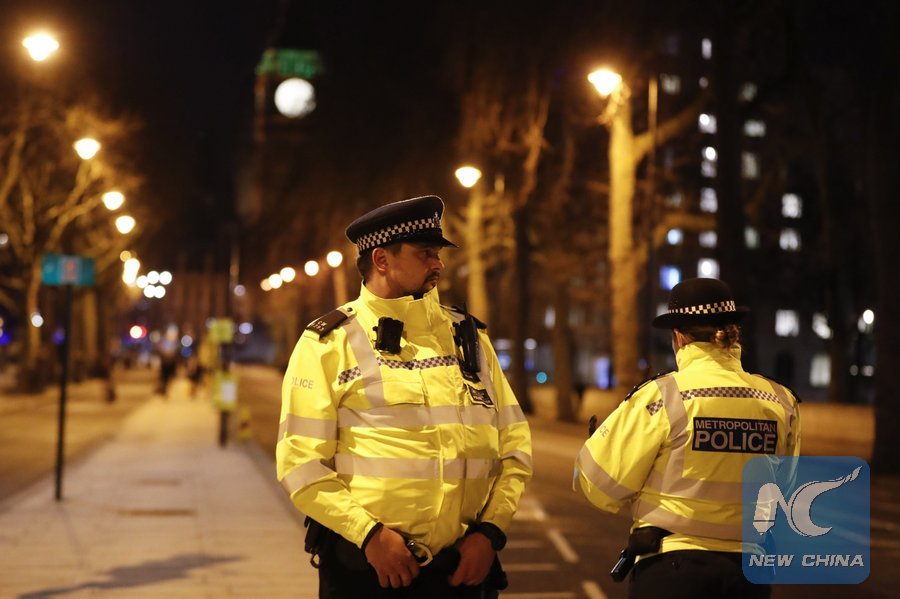
Two policemen stand guard outside the Houses of Parliament in London, Britain on March 22, 2017. (Xinhua/Han Yan)
LONDON, May 16 (Xinhua) -- Durham Constabulary in north east England has announced it is to trial an artificial intelligence system (AI) to judge the risk of suspects re-offending.
Police sergeants in custody suites at the force will use AI to help custody decide whether suspects should be sent into the criminal justice system.
The trial of the system, known as Harm Assessment Risk Tool (HART), will be used to classify suspects as either low, medium or high risk of re-offending, contributing to whether they are released or remanded in police custody.
A scientific randomized trial of the forecasts found that only 2 percent of low-risk suspects turned out to be at high-risk of re-offending. But the early trial also found that 12 percent of those forecast as high risk turned out to be low risk
The HART system has been developed by Dr Geoffrey Barnes, a lecturer in evidence based policing at the University of Cambridge. He is working in partnership with Durham Constabulary and the University of Cambridge's Center for Evidence-Based Policing, regarded as world experts in policing.
Barnes has told Xinhua: "There is no question that these techniques will become a core part of policing. Every 999 call will be screened using them. Every domestic violence incident will be assessed using it. In the rest of the justice system, these techniques will be used by prosecutors, corrections officials, and even judges."
The center's director Professor Lawrence Sherman said that it was an important economic requirement for the police to identify when to keep suspects out of the criminal justice system.
"What the algorithm does is allow the police to make evidence-based decisions," said Sherman. "The hypothesis that we want to test will clearly have a result in showing whether the algorithm made the decisions better or worse."

